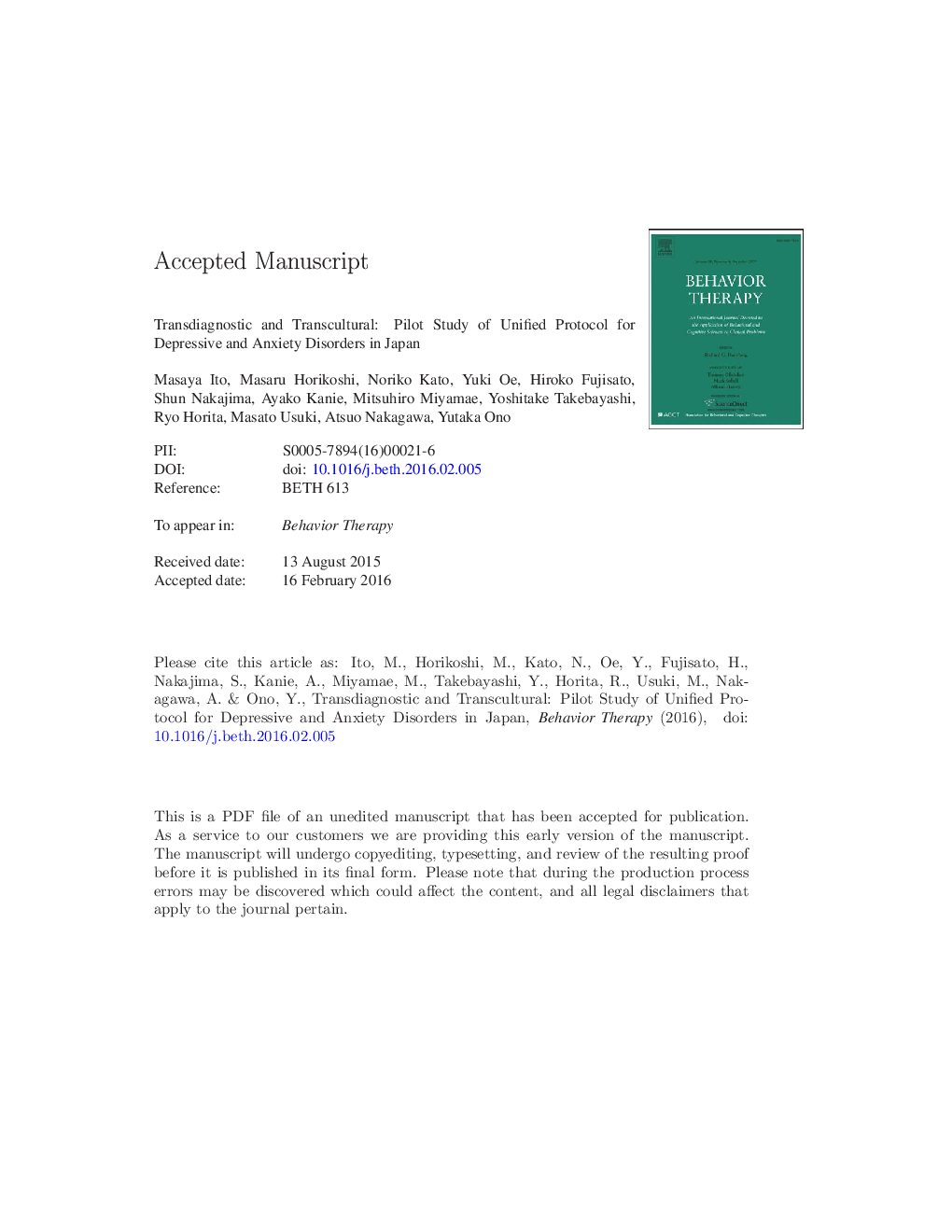| Article ID | Journal | Published Year | Pages | File Type |
|---|---|---|---|---|
| 10444157 | Behavior Therapy | 2016 | 55 Pages |
Abstract
Unified protocol (UP) is a transdiagnostic cognitive behavior therapy for emotional disorders. It remains unknown whether UP is applicable for use in non-Western countries and for depressive disorders. We therefore examined its feasibility for a Japanese clinical population using this clinical trial design, which is multicentered, open-labeled, and single-armed (Clinical registry: UMIN000008322). The primary outcome was severity of anxiety symptoms, as assessed using Structured Interview Guide for the Hamilton Anxiety Rating Scale. Secondary outcomes were depressive symptoms, clinical global impression, functioning, quality of life, affectivity, emotion regulation, and adverse events. Of the 28 prospective participants, 17 were eligible and enrolled (depressive disorders = 9, anxiety disorders = 8). Severity of anxiety symptoms, which decreased significantly after the intervention, remained low for 3 months (Hedges' g = 1.29, 95% CI = 0.56-2.06). Similar tendencies were observed for secondary outcome measures. No severe adverse event occurred. Two participants dropped out of the intervention. High treatment adherence and interrater reliability were confirmed. Results suggest the feasibility of UP in the Japanese context sufficient to warrant a larger clinical trial.
Related Topics
Health Sciences
Medicine and Dentistry
Psychiatry and Mental Health
Authors
Masaya Ito, Masaru Horikoshi, Noriko Kato, Yuki Oe, Hiroko Fujisato, Shun Nakajima, Ayako Kanie, Mitsuhiro Miyamae, Yoshitake Takebayashi, Ryo Horita, Masato Usuki, Atsuo Nakagawa, Yutaka Ono,
